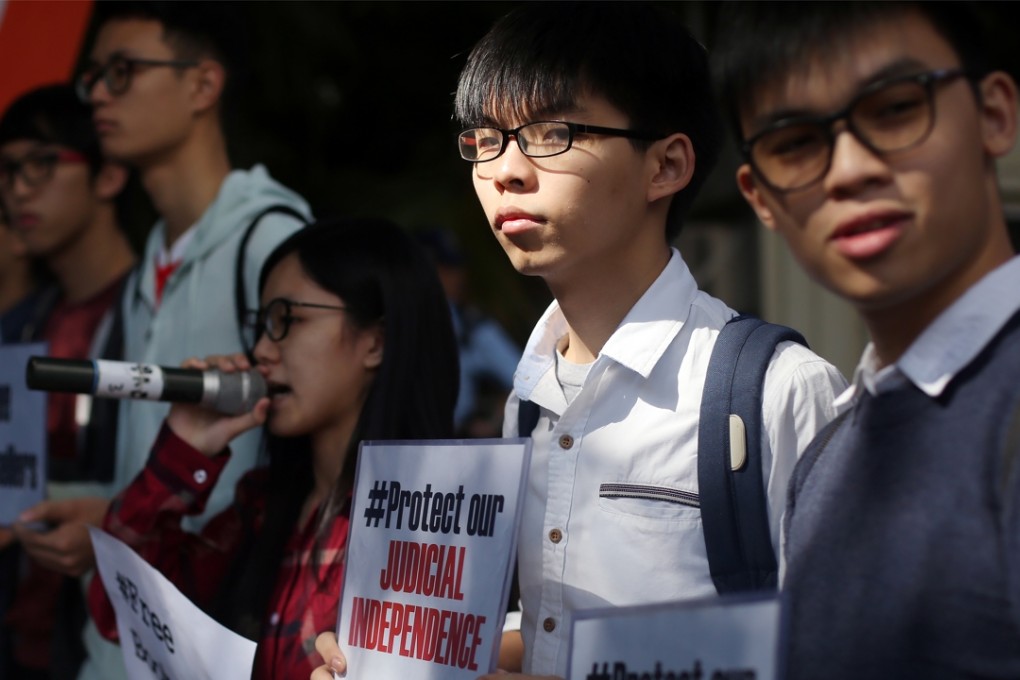Seekers of Hong Kong independence must have the foresight and patience to walk a peaceful path
John Chan applauds Scholarism for trying to bring a taboo subject into acceptable public discussion, but worries about the students’ resolve to avoid violence in their quest

Hong Kong’s independence has always been a taboo subject. Early advocates during the colonial era faced relentless suppression. At best, they were harassed and ridiculed; in some cases, they were persecuted. To Beijing, advocates of Hong Kong independence are separatists, on a par with Tibetan separatists who formed their own government-in-exile in India, or those in Xinjiang (新疆) who push for independence through armed struggle and terrorist attacks.
It is a move in the right direction that these students are seeking to rally mainstream support for their idea of Hong Kong’s future, instead of heading onto the streets in protests that lead nowhere
With a political party that has Hong Kong independence as its platform, people can expect a rational – albeit heated – debate on the issue. When the topic of independence as an option for Hong Kong after 2047 ceases to be taboo, but a subject for serious discussion, from both political and legal perspectives, then both Beijing and the SAR governments will be obliged to engage these young students-turned-politicians in rational and constructive dialogue.
READ MORE: We don’t need another Occupy: Joshua Wong reveals new approach and plan for referendum on Hong Kong’s post-2047 future

READ MORE: How Scottish independence debate can help solve Occupy deadlock
Experience of separatist movements in Europe shows that armed struggle invariably leads to decades of bloodshed and hatred; witness the terrorist tactics employed by Irish Republican Army (IRA) to seek to end British rule in Northern Ireland, or the armed struggle of the Basque separatists in Spain.
Hong Kong is an integral part of China; those who seek a referendum to decide its future must deal with the unavoidable counterpart – Beijing
Most Hong Kong people agree that using violent tactics to gain independence or greater autonomy can never be an option. Hong Kong is an integral part of China; those who seek a referendum to decide its future must deal with the unavoidable counterpart – Beijing.
The Scottish independence referendum in 2014, carried out with the blessing of the UK government, serves as a good reference for those who seek a similar path for Hong Kong. It was the product of interaction between the UK government and the Scottish Parliament, and went ahead only after the Scottish National Party (SNP) became the majority party in the Scottish legislature and formed a majority government in Scotland.
Like Scotland, we have our own legislature. It requires the blessing of Beijing to provide a legislative framework for a referendum on Hong Kong’s future after 2047. Dialogue with the central government is a prerequisite in any attempt to obtain that blessing.
READ MORE: Scottish referendum could be lesson in political engagement for Hong Kong, says First Minister Nicola Sturgeon
